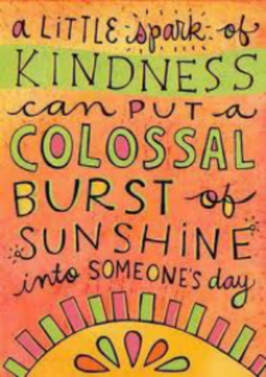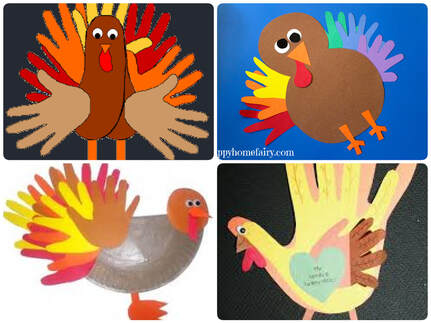 How are you doing? Do you have a case of Pandemic Fatigue? Many people understandably do. What do we do about it? The remedy is not to quit on all the precautions and do whatever we want. Now that a second wave and in some places a third has caught us up, we actually need to be more vigilant about wearing masks, distancing, sanitizing. One thing that could relieve some of the stress and anxiety is humor. As we start paying attention to moments and events that will yield a funny story, we give ourselves a temporary mental break. We shine the spotlight of our attention away from the moments of anxiety and worry that accompany these uncertain times. From the Mayo Clinic: When it comes to relieving stress, whether you're guffawing at a sitcom on TV or quietly giggling at a newspaper cartoon, laughing does you good. Laughter is a great form of stress relief, and that's no joke. Stress relief from laughter A good sense of humor can't cure all ailments, but data is mounting about the positive things laughter can do. Short-term benefits A good laugh has great short-term effects. When you start to laugh, it doesn't just lighten your load mentally, it actually induces physical changes in your body. Laughter can: Stimulate many organs. Laughter enhances your intake of oxygen-rich air, stimulates your heart, lungs and muscles, and increases the endorphins that are released by your brain. · Activate and relieve your stress response. A rollicking laugh fires up and then cools down your stress response, and it can increase and then decrease your heart rate and blood pressure. The result? A good, relaxed feeling. · Soothe tension. Laughter can also stimulate circulation and aid muscle relaxation, both of which can help reduce some of the physical symptoms of stress. Long-term effects Laughter isn't just a quick pick-me-up, though. It's also good for you over the long term. Laughter may: Improve your immune system. Negative thoughts manifest into chemical reactions that can affect your body by bringing more stress into your system and decreasing your immunity. By contrast, positive thoughts can actually release neuropeptides that help fight stress and potentially more-serious illnesses. Relieve pain. Laughter may ease pain by causing the body to produce its own natural painkillers. Increase personal satisfaction. Laughter can also make it easier to cope with difficult situations. It also helps you connect with other people. Improve your mood. Many people experience depression, sometimes due to chronic illnesses. Laughter can help lessen your depression and anxiety and may make you feel happier. Improve your sense of humor Are you afraid you have an underdeveloped — or nonexistent — sense of humor? No problem. Humor can be learned. In fact, developing or refining your sense of humor may be easier than you think. Put humor on your horizon. Find a few simple items, such as photos, greeting cards or comic strips, that make you chuckle. Then hang them up at home or in your office. Keep funny movies, books, magazines or comedy videos on hand for when you need an added humor boost. Look online at joke websites. Go to a comedy club. Laugh and the world laughs with you. Find a way to laugh about your own situations and watch your stress begin to fade away. Even if it feels forced at first, practice laughing. It does your body good. Consider trying laughter yoga. In laughter yoga, people practice laughter as a group. Laughter is forced at first, but it can soon turn into spontaneous laughter. Share a laugh. Make it a habit to spend time with friends who make you laugh. And then return the favor by sharing funny stories or jokes with those around you. Knock, knock. Browse through your local bookstore or library's selection of joke books and add a few jokes to your list that you can share with friends. Know what isn't funny. Don't laugh at the expense of others. Some forms of humor aren't appropriate. Use your best judgment to discern a good joke from a bad or hurtful one.” All of us have daily trials large and small so why not actively seek out gentle joy and humor so that we laugh more often both for the fun of it and the health of it. Comments are welcomed.
0 Comments
 Our choices can powerfully impact those around us. We get to choose how we want to show up when we walk into the coffee shop, take our seat on public transit, or call customer service. We have the option to acknowledge our shared humanity, and be present to one another. How do we want to show up? Who do we want to be? Wherever there is a human being, there is an opportunity for kindness. Research has shown that kindness can lower blood pressure, improve heart health, reduce stress and anxiety, even lessen pain. Who wouldn’t want some of that? Small Kindnesses By Danusha Laméris I’ve been thinking about the way, when you walk down a crowded aisle, people pull in their legs to let you by. Or how strangers still say “bless you” when someone sneezes, a leftover from the Bubonic plague. “Don’t die,” we are saying. And sometimes, when you spill lemons from your grocery bag, someone else will help you pick them up. Mostly, we don’t want to harm each other. We want to be handed our cup of coffee hot, and to say thank you to the person handing it. To smile at them and for them to smile back. For the waitress to call us honey when she sets down the bowl of clam chowder, and for the driver in the red pick-up truck to let us pass. We have so little of each other, now. So far from tribe and fire. Only these brief moments of exchange. What if they are the true dwelling of the holy, these fleeting temples we make together when we say, “Here, have my seat,” “Go ahead — you first,” “I like your hat.” Here is a lovely example of humanity and a kind heart: As the bus slowed down at a crowded bus stop, the Pakistani bus conductor leaned from the platform and called out, "Six only!" The bus stopped. He counted on six passengers, rang the bell, and then, as the bus moved off, called to those left behind: "So sorry, plenty of room in my heart — but the bus is full." He left behind a row of smiling faces. It's not always what we do, it's the way we do it. Comments are welcomed.  Today is Thanksgiving Day in Canada. Happy Thanksgiving all. I was born in the U.S. and raised in a small town in New England. After moving to Canada we celebrated both Thanksgivings for the first few years. I am finally all in on this Thanksgiving day. For the past few years I would query my grandkids about what Thanksgiving meant to them, what was important about this holiday. I was always so impressed with their thoughtful, insightful answers. Recently I was recalling some fun pre-holiday activities from grade school Our art activities included making Pilgrim hats, pumpkins, fabulous hand turkeys out of construction paper. Construction paper was a grade school staple. We made the appropriate symbols of all the holidays from construction paper – chains and tree decorations at Christmas, hearts and decorated shoe boxes to collect Valentines from classmates on Valentine’s Day, shamrocks for St. Patrick’s Day and so on. Sometimes we even acted out the first Thanksgiving as we learned about the early days of the New World settlers. These things were so exciting to 8 year-olds. The main thing that has been rattling around in my head was a song we learned during music time. The song is Over the River and Through the Woods. Perhaps you’ve heard it some time? I’ve provided the lyrics below. For the melody there are several versions on You Tube. BTW, the inclement weather described is likely due to U.S. Thanksgiving being celebrated the end of November. Over the river and through the woods, To grandmother's house we go; The horse knows the way to carry the sleigh, Through the white and drifted snow! Over the river and through the woods, Oh, how the wind does blow! It stings the toes and bites the nose, As over the ground we go. Over the river and through the woods, To have a first-rate play; Oh, hear the bells ring, "Ting-a-ling-ling!" Hurrah for Thanksgiving Day! Over the river and through the woods, And straight through the barnyard gate. We seem to go extremely slow It is so hard to wait! Over the river and through the woods, Now Grandmother's cap I spy! Hurrah for the fun! Is the pudding done? Hurrah for the pumpkin pie! Canadian Thanksgiving has had many iterations since the 16th century. It was declared a national holiday in 1879. In 1957, the government designated the second Monday in October to be the official Thanksgiving Day as it most closely coincided with the end of harvest. Following is the first record of a Thanksgiving celebration in Canada English explorer Martin Frobisher and his crew had the first Canadian Thanksgiving in 1578. (LIBRARY AND ARCHIVES CANADA ) As the story goes, in 1578, English explorer Martin Frobisher and his crew gave thanks and communion was observed, either on land at Frobisher Bay, in present day Nunavut, or onboard a ship anchored there. The explorers dined on salt beef, biscuits, and mushy peas and gave thanks through Communion for their safe arrival in then Newfoundland. This is now accepted as the first “Canadian” Thanksgiving. Comments are welcome.  Last weekend there was a civil liberties protest downtown with several hundred participants. They were protesting wearing masks, telling businesses to open their doors. As you can tell it was about the regulations imposed to contain the spread of Covid-19. The good news about this protest is that there were no unseemly incidents. The police were there to monitor the event. And, believe it or not, some protesters actually thanked the police for how they monitored the situation. Here's my issue with this protest. First, let me say that we are blessed to be living in a country that gives us the right to peacefully protest. We have the right to free speech, to express our thoughts, ideas, beliefs. This works especially when we do no harm. We have been asked to wear a mask, socially distance and wash our hands as the best means to contain the corona virus until a vaccine is developed. To me this is a very small ask considering the magnitude of the current situation. There is no doubt that staying home, having businesses closed, limiting our contact with family and friends has been very difficult and has taken it’s toll physically, financially, emotionally, mentally. However, I believe another perspective might be considered. That perspective comes from looking through the lens of gratitude. Would those who are mask shaming and so concerned about their civil liberties prefer to be living in a dictatorship or 3rd world country without access to good health care, electricity, running water or sufficient food? I was speaking with a gentleman the other day who immigrated here from east Africa some years ago. He talked about the wars that were going on in Ethiopia and how they couldn’t leave their home for fear of getting shot. Food was not available. He said you were lucky to find nuts or water to consume. I have to ask, how can we not be grateful for all of our blessings that come with living in our 1st world country. For those who believe Covid is not real or a hoax, how do you account for the 1,000,000 plus deaths around the world? Does anybody want to be responsible for adding to those numbers? Again, something so simple as wearing a mask (unless there’s a medical reason not to) and distancing has proven to save lives. One of those lives saved might just be your own or the life of a loved one. FYI. Since January Japan has had approximately 1,500 deaths from corona. How come so few? Masks hand washing, distancing. If we can find it in our hearts to be grateful for the blessings we have rather than believing we are put upon, we just might get through these unprecedented times. NO doubt the longer this virus wages on, the more difficult it is to maintain masking, distancing. It weighs heavily on all of us. We need to find it within us to stay the course, be resilient, resourceful and hopeful. Helping and supporting each other when the going gets tough is key. It will improve the well being of both the supporter and the supportee. Comments welcomed. |
Archives
July 2024
Categories
All
|

 RSS Feed
RSS Feed
